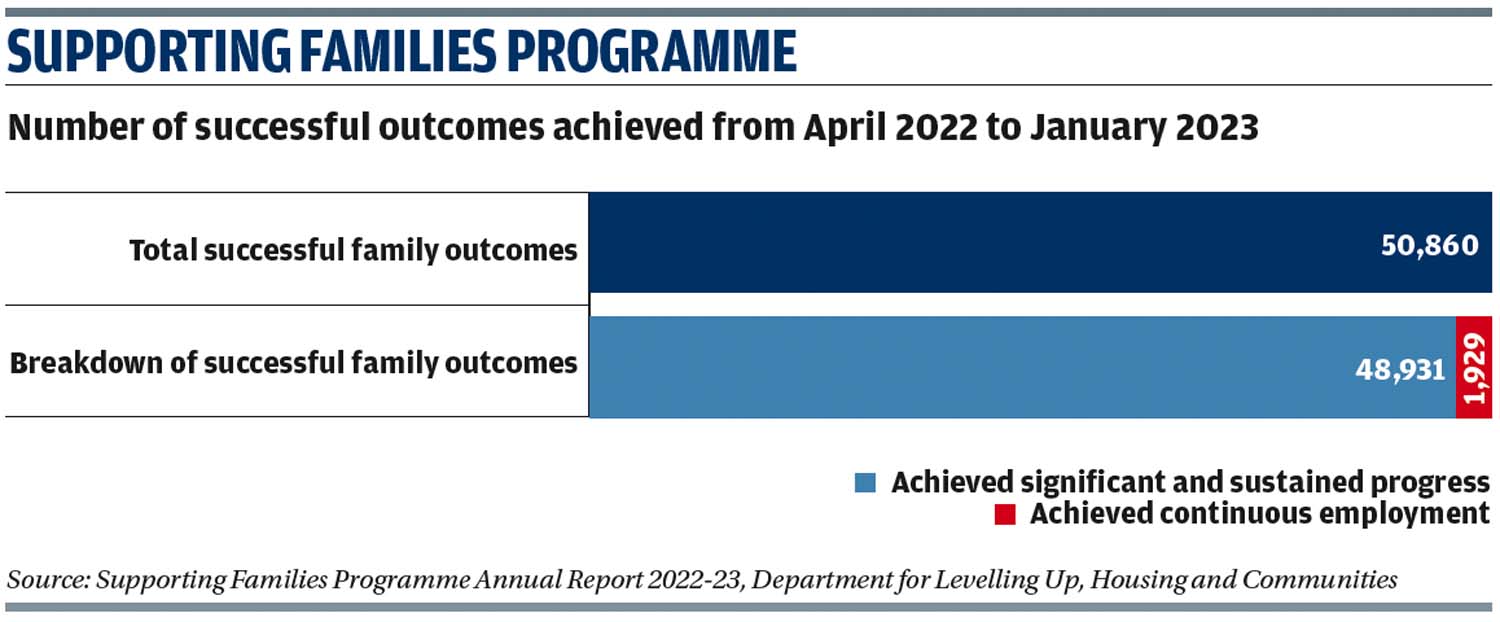
Family hubs will be rolled out across 75 areas, backed with £300m funding up to 2025, the government announced in February. Fourteen “trailblazer” authorities, in areas such as Blackpool, Cornwall, Manchester and Torbay, will lead the way and are to receive extra funding.
Start for Life
The family hubs model is a key element of the government's Start for Life programme, designed to improve support for children in their first 1,001 “critical days”.
In February, the government published a progress report on Start for Life, which included plans to test new workforce models. These will be piloted in five areas between April 2023 and March 2025 and backed by £10m in funding.
“These pilots will test ideas on how best to support the workforce to give babies the best start in life,” said the government. This includes looking at the mix of skills needed in local areas to support families with very young children.
The government has also pledged additional training to support the Start for Life workforce including interdisciplinary training designed to improve the way different professionals work together.
Online training modules for practitioners working with families with babies were due to be launched this summer.
Start for Life training this year also includes funding an additional 11 places on clinical psychologist and child and adolescent psychotherapist courses, to improve mental health support for families.
From this year, early help staff working with families with babies are being offered Health Education England (HEE) training focused on evidence-based parent and infant relationship interventions.
HEE is also developing online training around demonstrating reassurance and empathy when supporting families, which was due to be launched this summer.
Family help services
The government's Stable Homes, Built on Love report, published in response to last year's Independent Review of Children's Social Care, also outlines plans to bolster the early help workforce. Support varies across England with early help services provided to about 15 per cent of children in some areas but less than one per cent in others.
The government's plans centre on developing new “family help” services for those struggling with a range of challenges. Support would be delivered by multi-disciplinary teams, including social workers, who will work with families “as soon as problems emerge”. The government has said it will consult on plans to enable a wider range of practitioners to be caseholders for children in need and their families.
Family help services will be tested in 12 pilot areas over the next two years, backed by £45m in funding. Services will be led by councils working alongside health visitors, schools, family hubs and adult mental health teams.
Family help workers will continue to be involved with supporting families when intervention escalates, for example due to child protection concerns. The government says the current system is disjointed, with families moving between early help services and child in need teams. “With each new change in professional, children and families' histories are lost and the true scale of long-term harm becomes obscured,” says the Stable Homes, Built on Love report.
Supporting Families
The government's Supporting Families scheme was launched in April 2022 and focuses on families facing multiple problems, including unemployment, poor school attendance, health concerns, domestic abuse and risk of being involved in crime and anti-social behaviour. The government has committed £695m to the scheme – which replaced the Troubled Families programme – in the three years to 2025.
Programme roles include co-ordinators, key workers and employment advisers.
The scheme's latest annual report says it achieved 50,000 successful outcomes in the nine months to January 2023 (see graphics) and nearly 535,000 since its predecessor was launched a decade ago.
The family help pilots will include looking at how Supporting Families funding is being used, with findings used to inform future government spending decisions.


